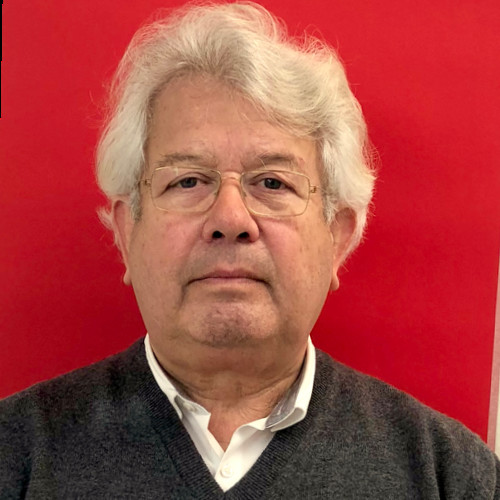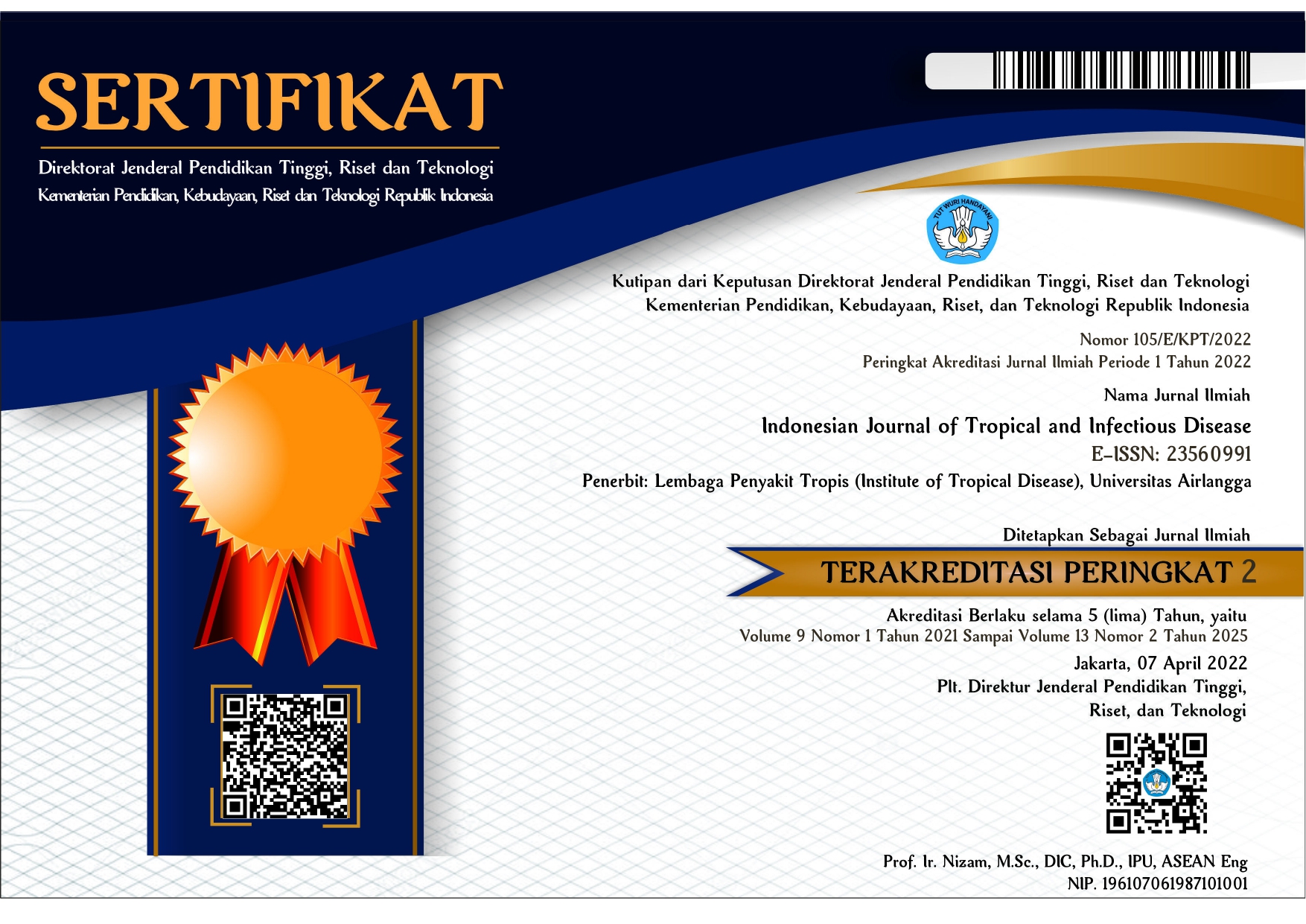ANALYSIS ON WHOLE BLOOD, SGOT, SGPT, AND TNF-a EXAMINATION IN PATIENTS WITH NON-DENGUE AND POSITIVE DENGUE FEVER (DF/DHF)
Downloads
Background: In Indonesia has four serotypes, the DEN-1, DEN-2, DEN-3 and DEN-4. The management of Dengue virus becomes difficult because the patients were infected with different clinical profiles depending on the serotypes and genotypes of infecting dengue virus. Consequently, the diagnosis and treatment becomes difficult. Aim: The purpose of this study was to identify the difference
between the results of laboratory tests between non-dengue fever and positive dengue fever. Method: This study was an observational cross-sectional study. Fifteen samples were diagnosed with dengue fever and fifteen samples with negative dengue fever on NS1, IgM / IgG-anti-DHF strip test results. Laboratory tests comprising whole blood, SGOT, SGPT, and TNFa were first examined when the patient came to the hospital. The collected data were analyzed by Chi-Square test SPSS version 13 for Windows. Result: The results of the study in two groups regarding sex, age, days of fever, grade, hemoglobin levels, leukocytes count, platelet count, hematocrit percentage, SGOT levels, and TNFa
level were not significantly different with p > 0.050, whereas the SGPT level in non-dengue increased 3 x of normal value of 66.7%, n = 10/15 and in positive dengue fever the SGPT level was within normal limits, found in 60%, n = 9/15, so there was significant difference with p = 0.022 (p < 0.05). Conclusion: in non-dengue SGOT and SGPT levels increased of 1–3 times the normal value. In positive dengue fever SGOT levels increased 1–3 x normal value, but SGPT levels was within normal value, so SGPT levels can be used as a predictive factor for distinguishing the two types of fever.
The Indonesian Journal of Tropical and Infectious Disease (IJTID) is a scientific peer-reviewed journal freely available to be accessed, downloaded, and used for research. All articles published in the IJTID are licensed under the Creative Commons Attribution-NonCommercial-ShareAlike 4.0 International License, which is under the following terms:
Attribution ” You must give appropriate credit, link to the license, and indicate if changes were made. You may do so reasonably, but not in any way that suggests the licensor endorses you or your use.
NonCommercial ” You may not use the material for commercial purposes.
ShareAlike ” If you remix, transform, or build upon the material, you must distribute your contributions under the same license as the original.
No additional restrictions ” You may not apply legal terms or technological measures that legally restrict others from doing anything the license permits.























